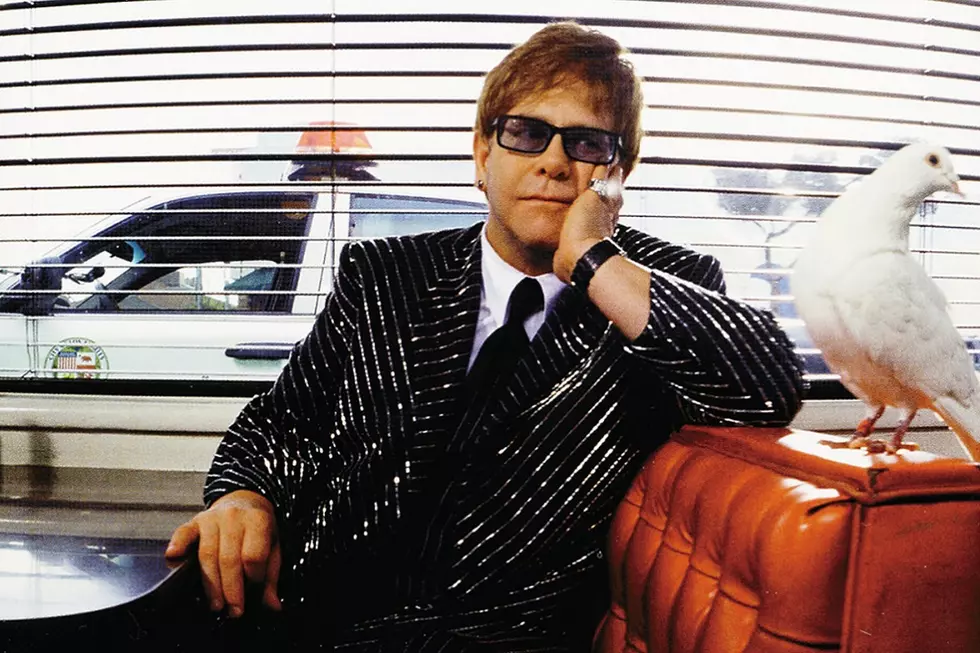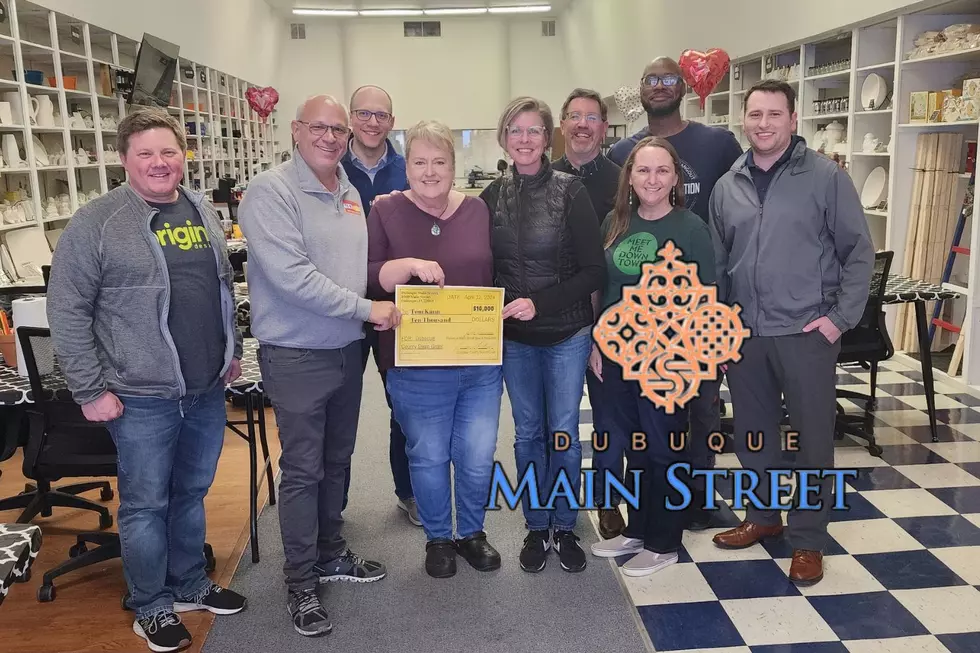
How Elton John Rediscovered His Roots on ‘Songs From the West Coast’
When Elton John released Songs From the West Coast on Oct. 1, 2001, the music press made a big deal of how much the album sounded like Elton’s early ’70s work. But the rock legend wasn’t so much inspired by his old work than he was stirred by a new, young troubadour.
“Hearing Ryan Adams’ album Heartbreaker was a seminal point for this part of my career,” he told Cameron Crowe in Rolling Stone in 2013. “I just fell in love with him and that record.”
John even thanked the alt-country singer-songwriter in the liner notes “for making me do better.” Before making his 27th studio album, he met with his longtime partner in songwriting, lyricist Bernie Taupin, and talked about working a little bit harder on new songs.
“I’m a perfectionist and sometimes I just haven’t pushed myself hard enough,” John told GQ in 2001. “Bernie and I had a meeting last year in the south of France and said, ‘If we’re going to do this album we’ve got to have an abundance of songs to choose from, like we did in the old days.’”
For the first time ever, John and Taupin worked in the same room on material. That room was in Los Angeles – hence the record’s title. The lyricist seemed to pick up on John’s reflective mood, writing compositions that recalled ’70s epics (“Ballad of the Boy in the Red Shoes”) or took a wearied look back on crazier days (“This Train Don’t Stop There Anymore”). John actually requested one song, a track about Matthew Shepard, the gay teenager who had been killed in 1998. That song became “American Triangle.”
“When Matthew was murdered, I was shocked and outraged, and I couldn’t believe there was someone who could do that,” John told VH1 in ’01. In addition to setting up a scholarship in Matthew’s name, Elton wanted to honor the boy in a song. “So I wanted desperately to write something about it, and it turned out really well. It was the first song we wrote on the album.”
Listen to Elton John Perform 'This Train Don't Stop There Anymore'
Once John and Taupin had a batch of quality songs, recording began (also on the titular West Coast). Patrick Leonard was brought in to produce and he, in turn, brought in other musicians to ensure that John couldn’t fall into too many easy habits from recent records. In addition, John brought in a few of his famous friends to collaborate on the album, including Billy Preston, Rufus Wainwright and Stevie Wonder.
“I decided that recording wasn't as much fun as it used to be,” John said in GQ. “I thought if I was going to record again then I’d better enjoy it. I also wanted to go back to recording just piano, bass, drums and guitar, just a four-piece, analog, with hardly any overdubs. I also thought it was really important for the piano to be featured much more than it has been in the past. We got away from synthesizers and went back to being, I hate to use the word, but a bit more organic.”
Fans and critics took notice, with some writers claiming that Songs From the West Coast was John’s best collection of songs in years, if not decades. Everyone involved in the making of the record seemed to give it high marks. John has continued to praise the 12 tunes, even singling out “Original Sin” as “one of the best songs I’ve ever written.”
What Songs From the West Coast claimed in quality, it lacked in hits. Although high-profile videos starring Robert Downey Jr. (lip-synching “I Want Love”), Justin Timberlake (doing the same in “This Train Don’t Stop There Anymore”) and Elizabeth Taylor and Mandy Moore (“Original Sin”) went into heavy rotation on the video networks, the singles failed to have a huge impact on radio. Indeed, 2001 would mark the first year of John’s career where he didn’t land a single on the Billboard Hot 100 – a record-breaking streak lasting 31 years.
As such, Songs From the West Coast would begin a new era for John, who continued to strip down his music (working with T Bone Burnett), reflect on the past (The Captain and the Kid), pair-up with like-minded collaborators (The Union with Leon Russell) and focus on making satisfying albums instead of trying for pop chart success. In many ways, Elton the elder statesman was born on the west coast.





